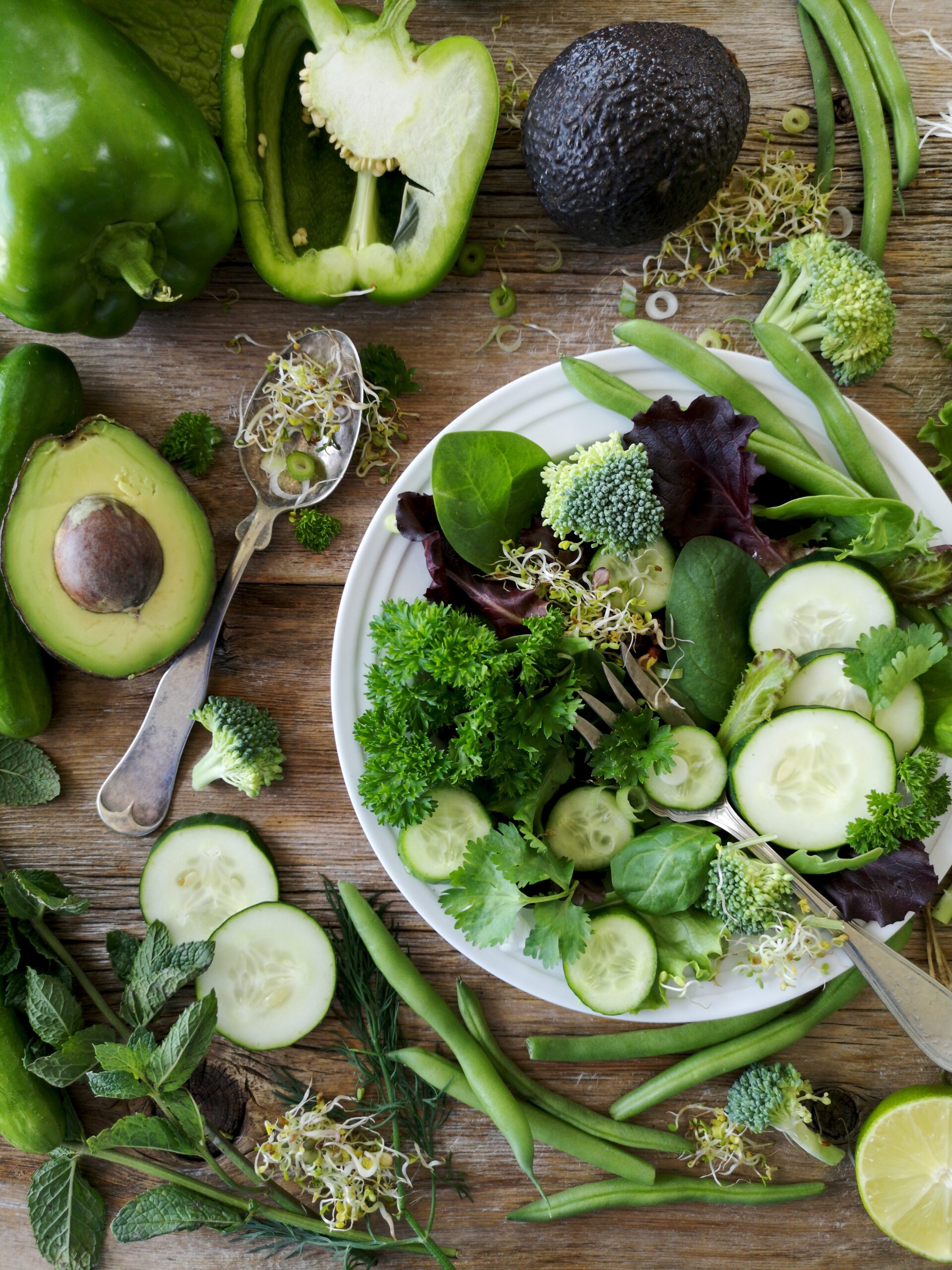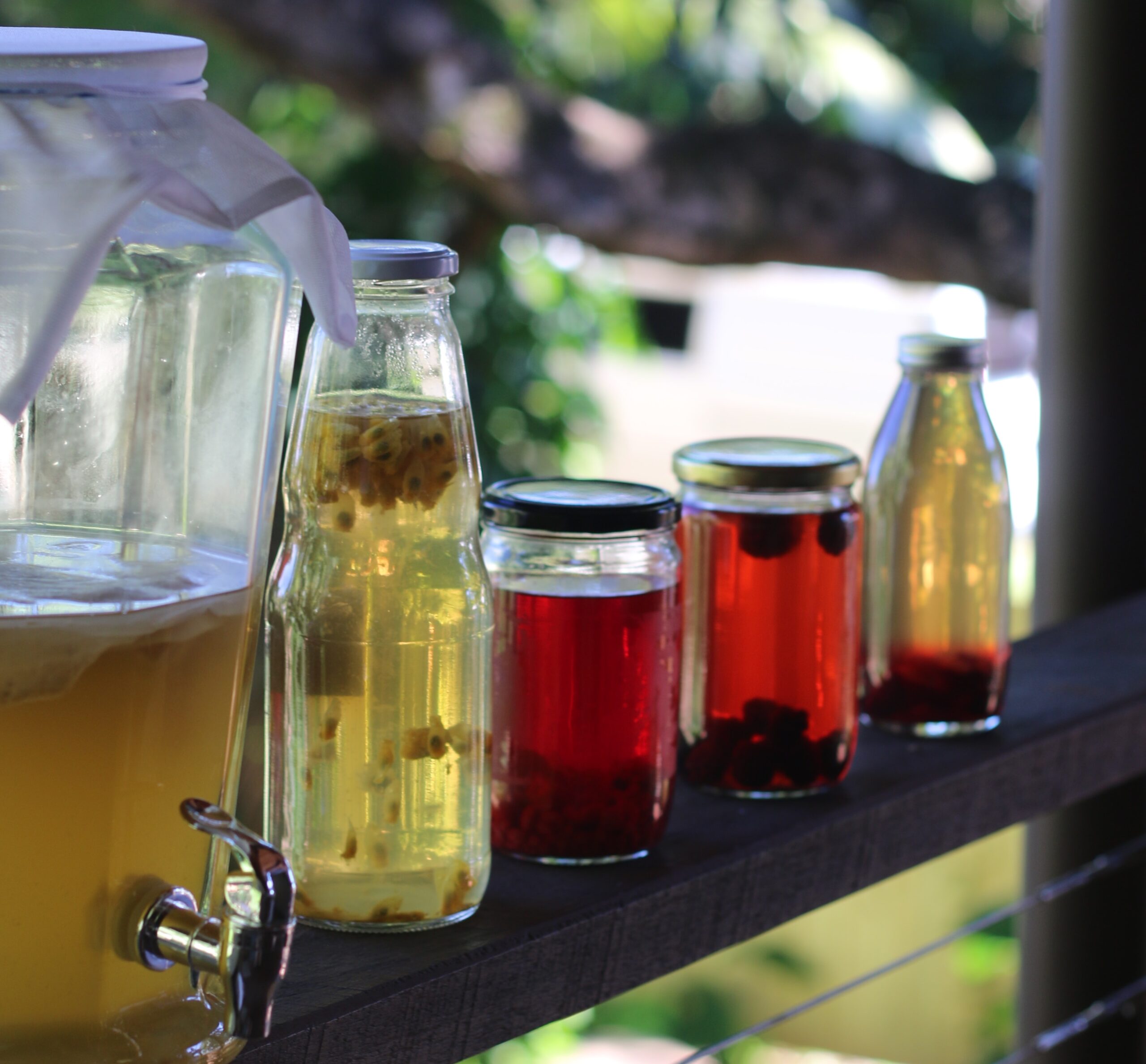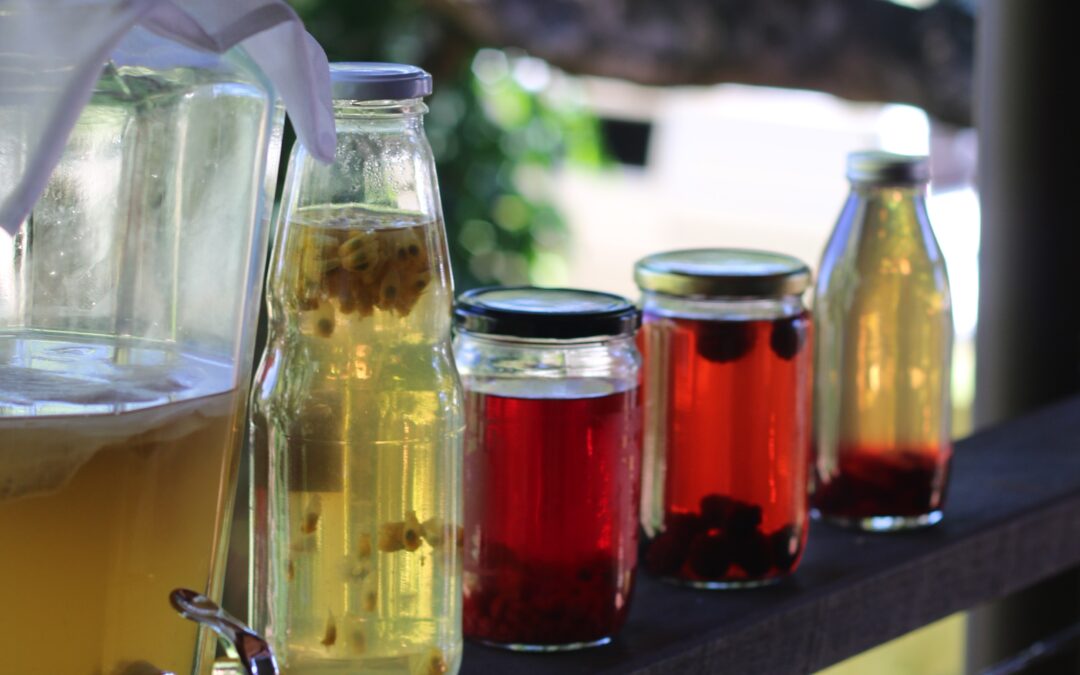Pre + Pro= A Happy, healthy Gut
Probiotics have gained enormous popularity over the past ten years and for good cause. They assist with much more than just your digestive health including boosting your immune system, weight control, and supporting mental health. You may not be as familiar with prebiotics, but both work together to maximize your gut health and overall wellness.
What is the Function of Prebiotics & Probiotics?
- Probiotics: Living strains of bacteria that add to the population of good bacteria in your digestive system.
- Prebiotics: Specialized plant fiber that acts as food for good bacteria. This stimulates growth among the preexisting good bacteria.
EACH HAS A DIFFERENT FUNCTION & EFFECT ON YOUR HEALTH
Probiotics:
Probiotics can have several effects on your health and physical functions, including:
- Intestine colonization
- Creation of short-chain fatty acids
- Synthesis of vitamins, such as folate and vitamin K
- Strengthening the gut lining
- Eliminating toxins
- Altering immunological function
- Hormones being affected
Prebiotics:
Prebiotics have both indirect and direct effects on your general health. They can immediately influence your health regimen more obviously after consumption and support the growth of your microbiome. Prebiotic fiber can help you feel fuller for a longer period, limit overeating, and help with bowel regularity. Moreover, they can help regulate your blood sugar levels and lower LDL (“bad”) cholesterol levels. 
Prebiotics are typically ingested in the form of food. Some good examples include:
- Artichokes
- Asparagus
- Bananas (especially green)
- Jicama
- Leeks
- Onions
- Legumes
- Fennel
- Nuts
- Scallions
- Oats
- Apples with skin
PROBIOTIC BACTERIA ARE FED BY PREBIOTICS
Probiotics and prebiotics differ significantly in that probiotics are living organisms, such as bacteria and yeast and prebiotics are probiotics’ food. The probiotics in meals and supplements need to endure the stomach’s acidic environment and bile secretion to reach the colon, where bacteria invade the gut.
Your microbiome (a collection of all microbes, such as bacteria, fungi, viruses, and their genes, that naturally live on our bodies and inside us) makeup changes over time since your gut is a changing habitat. Age, nutrition, health state, medications, and even prebiotic use all have an impact on it.
Your gut is home to trillions of live probiotic organisms and up to 1,000 distinct bacterial types. Your health and disease risk may be affected by the general flora of your gut. Prebiotics must get beyond the digestive system to reach your colon, the home of your gut flora, to be effective.
These high-fiber carbohydrates are non-digestible and must endure the digestive process. These foods are very high in soluble fiber, which is very fermentable.
Do Prebiotics or Probiotics Work Better? 
To be brief, probiotics and prebiotics are both helpful for maintaining a healthy gut. It’s important to include probiotics and prebiotics in your diet, whether through meals, supplements, or both because they work together to support the growth of your gut flora.
The number of beneficial bacteria in your stomach can be directly increased by eating foods high in probiotics or by taking a probiotic supplement. Similarly, eating foods high in prebiotics or taking a prebiotic supplement might increase the number of healthy bacteria in your gut by promoting their growth. Keep in mind that prebiotics feed your gut flora, encouraging them to flourish.
To survive, gut bacteria in your colon ferment and digest the prebiotics. They work together effectively. Prebiotics are broken down by the bacteria in your stomach to produce a variety of short-chain fatty acids.
They assist in:
- Supplying energy to the bacterium.
- Keeping your immune system healthy
- Encouraging inflammatory processes
INCLUDE PROBIOTIC VEGETABLES IN YOUR MEALS
A little goes a long way when it comes to many probiotic-rich foods. One probiotic item every week may be a good place to start, though it’s best to consume a range of probiotic foods every day. You probably already have some probiotic-rich items in your fridge.
Some examples include:
- Yogurt
- Kefir
- Sauerkraut (refrigerated, not shelf-stable)
- Kimchi
- Miso
- Tempeh
- Kombucha
- Raw, unfiltered apple cider vinegar
Prebiotic & Probiotic Supplements to Consider
You need a well-planned diet to ensure you consume adequate probiotics and prebiotics from food. You can step up efforts to support your gut by taking supplements containing probiotics, prebiotics, or a combination. Lean Kitchen offers a variety of probiotic supplements. Any of our team members can chat with you about your needs and suggest the best products for your healthy lifestyle.

